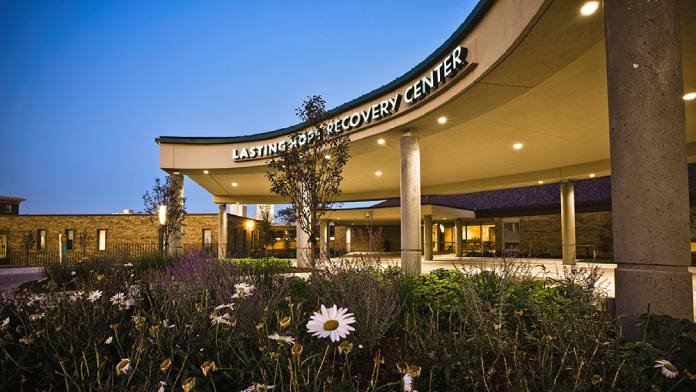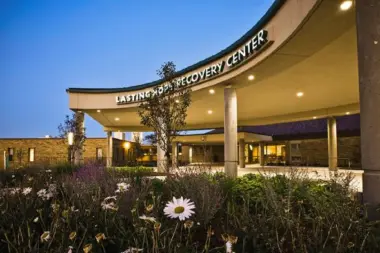About CHI Health Clinic Psychiatric Associates (Lasting Hope)
Lasting Hope in Omaha, Nebraska, is a CHI Health Clinic Psychiatric Associates location. They accept Medicaid, Medicare and other major insurance coverages. Uninsured and underinsured clients are eligible for financial assistance if they are at or below 400 percent of the Federal Poverty Level.
They offer outpatient services for all ages. Treatments are based on trauma-informed care principles. Appointments can be scheduled as in-person or virtual visits.
Services for Children and Adolescents
Their chemical dependency program treats children or adolescents who do not need intensive services for substance use disorders. Psychiatrists deliver services such as play therapy, family therapy and evaluations. Clinicians apply group therapy, psychopharmacological and other treatments modalities.
Outpatient Treatment for Substance Use Disorder
Their general outpatient services allow a client to develop a personalized treatment plan to achieve sobriety. The client will discuss and learn about alcohol and drug abuse in individual and group therapies. Community support groups such as AA and NA, learning to improve coping skills and discovering abstinence centered alternatives are provided to place a client on the path to a new and improved life.
Intensive Relapse Prevention Treatment
Clients receive relapse prevention treatment. For clients having difficulty maintaining sobriety, an intensive relapse focus treatment is available. This treatment helps the client develop management strategies for high-risk situations.
Continued care for clients who have completed treatment is available in the community through resources such as AA and NA. Your treatment team will make referrals for continued care.
Intervention and Education Services
Intervention counseling can be initiated by family, friends and employers. A physician, therapist and other team members will work with the individual and educate those who initiated treatment on the addictive process and its effects.
Facility Overview
Latest Reviews
Rehab Score
Gallery


Other Forms of Payment
Medicare is a federal program that provides health insurance for those 65 and older. It also serves people under 65 with chronic and disabling health challenges. To use Medicare for addiction treatment you need to find a program that accepts Medicare and is in network with your plan. Out of pocket costs and preauthorization requirements vary, so always check with your provider.
Addiction Treatments
Levels of Care
Outpatient Programs (OP) are for those seeking mental rehab or drug rehab, but who also stay at home every night. The main difference between outpatient treatment (OP) and intensive outpatient treatment (IOP) lies in the amount of hours the patient spends at the facility. Most of the time an outpatient program is designed for someone who has completed an inpatient stay and is looking to continue their growth in recovery. Outpatient is not meant to be the starting point, it is commonly referred to as aftercare.
Treatments
Mental health rehabs focus on helping individuals recover from mental illnesses like bipolar disorder, clinical depression, anxiety disorders, schizophrenia, and more. Mental health professionals at these facilities are trained to understand and treat mental health issues, both in individual and group settings.
Clinical Services
Cognitive Behavioral Therapy (CBT) is a therapy modality that focuses on the relationship between one's thoughts, feelings, and behaviors. It is used to establish and allow for healthy responses to thoughts and feelings (instead of unhealthy responses, like using drugs or alcohol). CBT has been proven effective for recovering addicts of all kinds, and is used to strengthen a patient's own self-awareness and ability to self-regulate. CBT allows individuals to monitor their own emotional state, become more adept at communicating with others, and manage stress without needing to engage in substance abuse.
Dialectical Behavior Therapy (DBT) is a modified form of Cognitive Behavioral Therapy (CBT), a treatment designed to help people understand and ultimately affect the relationship between their thoughts, feelings, and behaviors. DBT is often used for individuals who struggle with self-harm behaviors, such as self-mutilation (cutting) and suicidal thoughts, urges, or attempts. It has been proven clinically effective for those who struggle with out-of-control emotions and mental health illnesses like Borderline Personality Disorder.
Research clearly demonstrates that recovery is far more successful and sustainable when loved ones like family members participate in rehab and substance abuse treatment. Genetic factors may be at play when it comes to drug and alcohol addiction, as well as mental health issues. Family dynamics often play a critical role in addiction triggers, and if properly educated, family members can be a strong source of support when it comes to rehabilitation.
Group therapy is any therapeutic work that happens in a group (not one-on-one). There are a number of different group therapy modalities, including support groups, experiential therapy, psycho-education, and more. Group therapy involves treatment as well as processing interaction between group members.
In individual therapy, a patient meets one-on-one with a trained psychologist or counselor. Therapy is a pivotal part of effective substance abuse treatment, as it often covers root causes of addiction, including challenges faced by the patient in their social, family, and work/school life.
Trauma therapy addresses traumatic incidents from a client's past that are likely affecting their present-day experience. Trauma is often one of the primary triggers and potential causes of addiction, and can stem from child sexual abuse, domestic violence, having a parent with a mental illness, losing one or both parents at a young age, teenage or adult sexual assault, or any number of other factors. The purpose of trauma therapy is to allow a patient to process trauma and move through and past it, with the help of trained and compassionate mental health professionals.
Staff

Tim Bricker
President & CEO, CommonSpirit Health Central Region

Tim Plante, RN, MSN, MHA
CNO

Brian Tiffany, MD, PhD
Chief Medical Officer

Kathleen Rondeau
Chief Strategy Officer

Bradley Pristelski
CIO

Troy Hammett
CFO

Aaron Austin, MBA
CHRO

Derek Havens
VP of Operations & Performance Partnerships
Contact Information
415 South 25th Avenue
Omaha, NE 68131